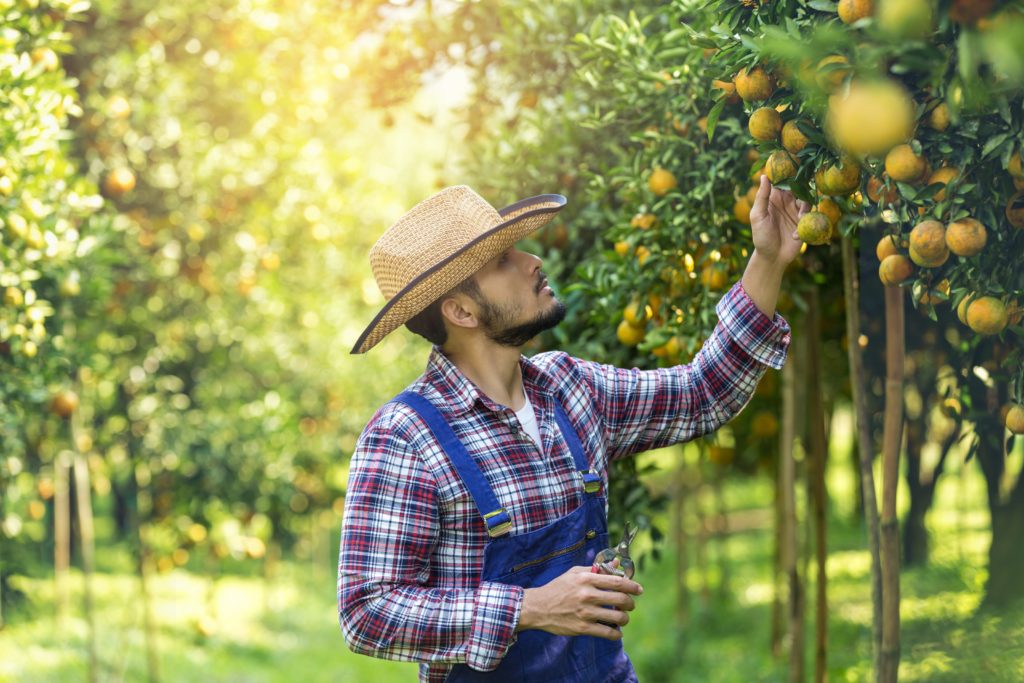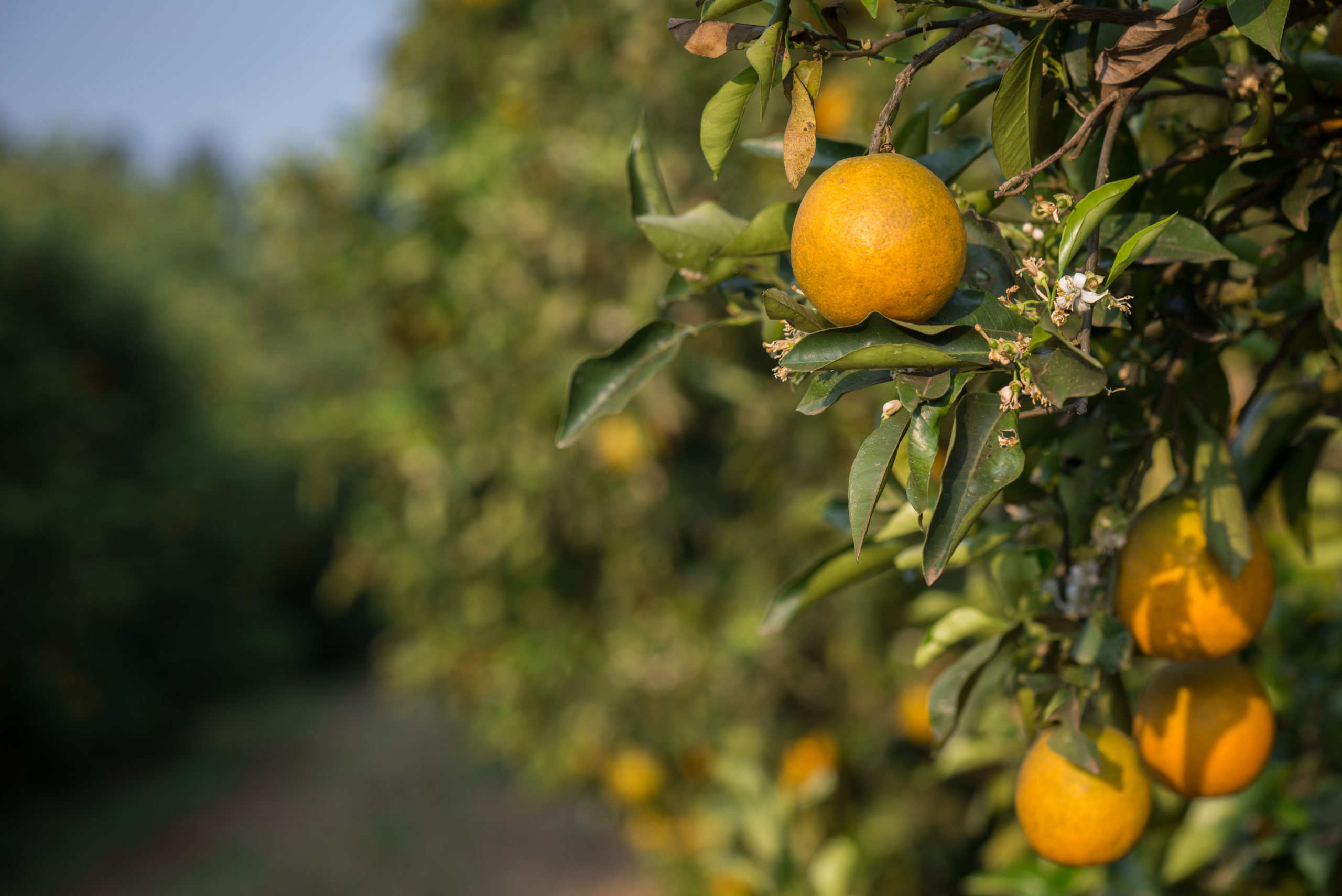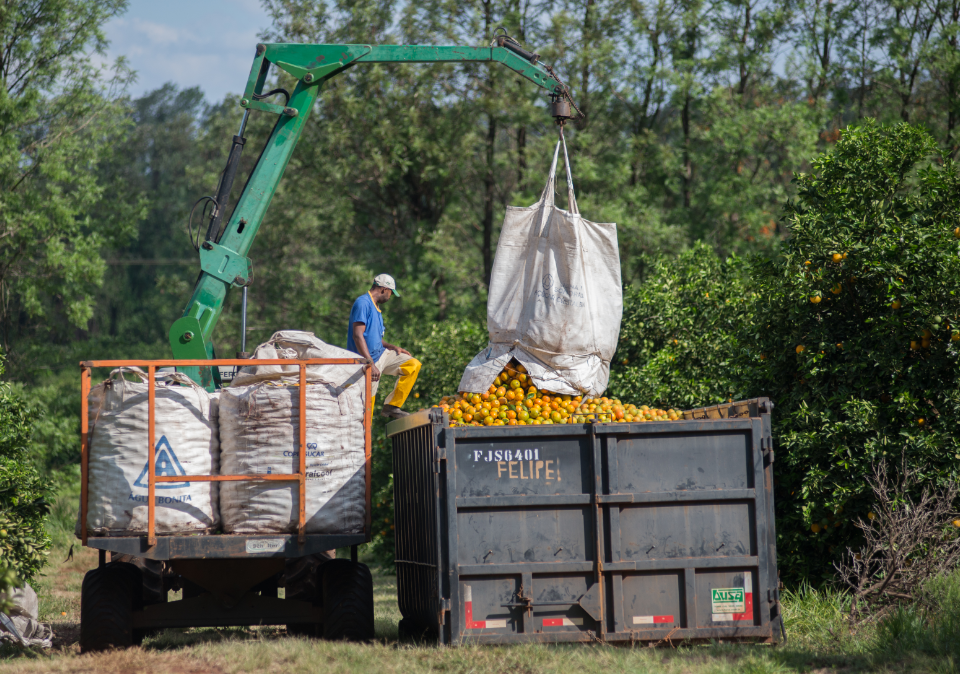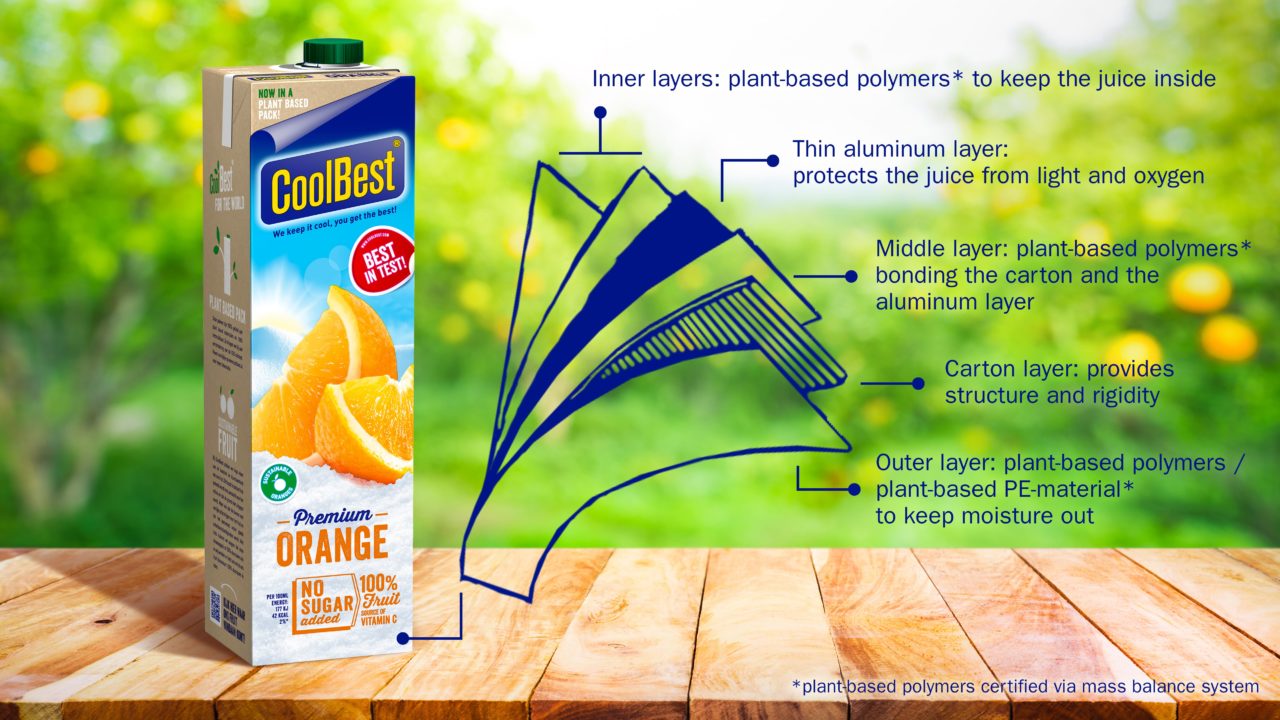Sustainable juice tastes better!
You will probably enjoy your fruit juice even more, if you know that we do our utmost to produce it in the most sustainable way possible. At CoolBest, we find sustainability very important, because we can ensure we can still enjoy a nice glass of juice responsibly in the future! That’s why we make important steps in the field of sustainable fruit, sustainable cartons and sustainable transport.

‘’Sustainability is like a plate of spaghetti. If you pull one strand, you have no idea where it will end.’’
Piet Haasen, Juice Sommelier CoolBest
Nature offers us the most delicious fruit. We make the most delicious juices from it, so can you enjoy it every day! We get the fruit from the most exotic places on earth. Areas where environmentally- and people-friendly fruit cultivation is not always self-evident and where we can play a role to improve this.
Together with Solidaridad we work on local projects that help fruit farmers cultivate the oranges and mangoes as responsible as possible. After all, only with a healthy company they can continue to provide us with delicious fruit from nature in the future. That’s why we help the farmers by working hard every day to meet our high demands and the sustainability of our fruit.
Solidaridad is an organization for international cooperation with 45 years of experience in the development of socially responsible, environmentally friendly and profitable production chains. For example, they have developed the Rural Horizons program: a platform with thousands of farmers to improve their production.
Within the Rural Horizons program we help orange juice farmers to improve their activities and make them more sustainable. We ensure that the natural environment, the social and economic circumstances of farmers, their employees and the local communities are protected and even improved.

By providing local farmers with the right knowledge, we ensure that they deal with the environment in the most responsible way possible. In this way, we ensure that fruit cultivation and nature remain in balance in the coming years.
The term biodiversity refers to the wealth of various plants and animals. At CoolBest we think it is very important to keep nature in balance. An area with only orange trees is not good for nature.
For this reason farmers often cultivate other products such as coffee. In addition to growing plants, many of our farmers keep bees. Bees are essential for the fruit on the orange trees and very important for the conservation of the biodiversity. Through pollen on their feet they ensure that all kinds of plants can start to grow elsewhere.
The orange cultivation in Brazil provides more than 250.000 jobs. About 80% of the orchards belong to family businesses that usually use temporary works to pick the oranges. It is our ambition to ensure that fruit farmers and their pickers, all around the world, have a good life.
Our sustainability program pays much attention to the employees of farmers. After all, oranges are harvested by hand. The fruit farmers often make use of temporary pickers. The Rural Horizons program teaches farmers to improve the working conditions during the harvest.
For example, these working conditions are improved by wearing protective clothing while picking. Toilet facilities with water and shade are available to sit during a break. Good for the people.

The fruit farmers are at the beginning of the chain, but of course the juice must also be transported and packaged. CoolBest also makes this step of the chain as sustainable as possible.
The CoolBest cartons consist of various layers: cardboard, plastic and aluminum. These layers are necessary to get your juice in the fridge as delicious as possible. For the layer of cardboard we use FSC®- certified cardboard*. By buying a CoolBest carton you therefore contribute to the worldwide care of our forests. The CoolBest cartons are 95% linked to plant-based materials. The remaining 5% consists of aluminum. Aluminum is needed to keep the juice fresh. This aluminium can be reused again and again, making the cartons recyclable. Below picture is a summary:

All cartons contain plastic layers, that are necessary to protect the cardboard from moisture. The plastic layers and the cap are made from plant material (tall oil) instead of fossil fuels. We prefer to use plant-based materials, as they are renewable and therefore don’t exhaust the environment. The plastic in the CoolBest cartons are 100% linked to plant based material through a mass balance system and the cartons are 100% recyclable. For example buckets are made from the plastic, the paper is used for toilet paper and the aluminum is also reused.
We use the vegetable raw material tall oil for making plastic. Tall oil, also called “liquid rosin” or tallol, is a viscous yellow-black odorous liquid obtained as a by-product of the Kraft process of wood pulp manufacture when pulping mainly coniferous trees. We use the vegetable raw material tall oil to make plastic. Tall oil is chosen because it is normally a waste and is used as a fuel. As tall oil comes from trees, this raw material is completely renewable. Because we use tall oil as raw material for plastic, we contribute to a more sustainable environment.
We are proud to say that our oranges, strawberries and cherries are already 100% sustainably grown!
We don’t squeeze the fruit in the Netherlands, but in the areas where it is picked, for example in Brazil. We make concentrate from that squeezed fruit. Concentrating is the process in which a part of the water is extracted from the juice by heating the juice. As the water is extracted from the juice, we reduce the juice volume by 83%. This means, we don’t have to transport so much to the Netherlands. Transporting one ship with concentrate equals five ships required for transporting juice not made from concentrate (NFC). So much more sustainable! Once arrived in the Netherlands, we thaw the frozen concentrate and add the same amount of water again. We use very pure water, as our factory is located in the Veluwe, which has high-quality water.
In total, the use of concentrate reduces CO2-emissions by 39,5% compared to NFC. Concentrating is therefore much more environmentally-friendly.
We are on our way to a sustainable chain, that starts with the farmer in the tropics and ends in the supermarket just around corner. We keep it cool, you get the best.
* The international independent FSC-quality mark ensures that raw materials for wood- and paper products (such as cardboard) come from responsibly managed forests, with a focus on people and animals that depend on the forest.